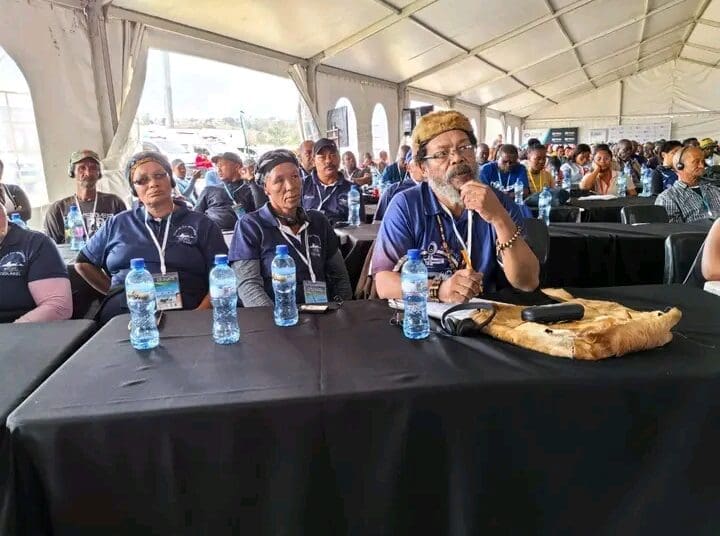Deputy Minister of Forestry Fisheries, and Environmental Affairs, Bernice Swarts aims to strengthen engagement between government and coastal fishing communities and provide technical support to small-scale fishers.
The department hosted a summit in the Eastern Cape to implement the Small-Scale Fisheries Policy and the Marine Living Resources Act.
It aimed to increase collaboration between authorities and 72 fishing cooperatives, address critical infrastructure concerns and highlight successful small-scale fishery methods.
Swarts acknowledged the long-standing struggles faced by the small-scale fishers, which include limited access to permits, underdeveloped harbour facilities, a lack of cold storage and processing infrastructure.
“This summit isn’t just another meeting, it’s a critical step toward solving the real, persistent struggles of our small-scale fishers, [including] limited market access, crumbling infrastructure and gaps in essential services. These issues hold you back, and that’s unacceptable,” said Swarts.
She reaffirmed the government’s commitment to not only listen, but also act on issues.
“With the Small-Scale Fisheries Policy and the Marine Living Act we want to bridge the gap between government and fishing communities by providing hands-on support, tackle market barriers and amplify your voice in shaping better policies,” Swartz said.
She said the summit’s findings would have a direct impact on national plans aimed at changing and professionalising the small-scale fisheries sector.
“We must streamline government efforts… no more duplication, no more mixed messages. One goal is a fisheries sector where no one is left behind,” the deputy minister said.
The summit also drew attention to ongoing struggles faced by coastal fishing communities, particularly around the legal recognition of small-scale fishers, and the harassment and violence by rangers.
Boyisile Mafilika the spokesperson for the Masifundise Development Trust, which is an independent trust that supports small-scale fishing communities in mobilising and advocating for legal recognition, urged Swarts to intervene in ensuring that the rights of small-scale fishers rights are recognised and respected.
“There was a court judgment that used to recognise small-scalers, but if you go in the area of Dwesa-Cwebe, the agency that manages the marine protected area is clueless about the court judgment. They don’t recognise the customary rights of the fisheries,” said Mafilika.
“So, we urge the minister to help us get recognised because this is how we make a living, without this, the scalers are nothing.”
Currently, the small-scale fisheries are using the marine policy adopted in 1998 and Mafilika believes that it is outdated and does not address the current challenges.
“It’s about time for the department to do a review of the Marine Living Resources Act of 1998. The minister must set a timeframe for that review this year because I believe that the challenges we’re dealing with, can be resolved through the MLRA,” said Mafilika.































































